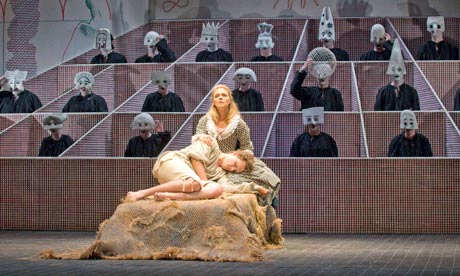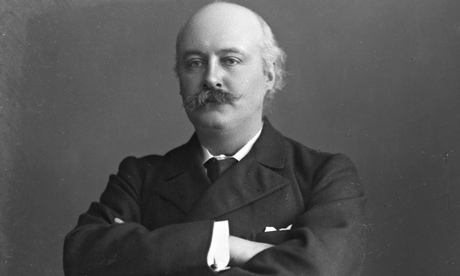The visceral power of voices united has been a feature of this changeable, disagreeable English summer. A super-charged chorus generated its own solar energy to match idyllic sunshine at Glyndebourne for the opening of Handel’s Saul, while our longest-established celebration of singing, the Three Choirs festival, defied more typical gales and biting rain to emerge triumphant into its fourth century.
We hear so much of the Proms and Edinburgh that Britain’s oldest musical gathering, which set the pattern for all those that came later, has often been overshadowed. It’s time we honoured it. Established 300 years ago this year, it has seen the genesis of some of the nation’s favourite works and serves as an annual reminder that our cathedrals are a continually renewing source of musical excellence.
Perhaps its origins in a pub, where the singing men of Hereford, Worcester, and Gloucester cathedrals met to run through some less than ecclesiastical repertoire, gives this festival its zest and its willingness to move away from a staple diet of devotional works. This year, in a week of almost nonstop music-making, artistic director Geraint Bowen programmed the traditional greats of Elgar’s Gerontius and Beethoven’s Missa Solemnis alongside Stravinsky’s thoroughly pagan Rite of Spring and Messiaen’s Turangalîla-Symphonie, that wildly exuberant celebration of love and sex. There’s nothing prim about Hereford.
Pianist Steven Osborne played the fiendish solo piano writing with the same dazzling command he was to bring to a superbly intimate recital of late Beethoven and Schubert sonatas two days later. The Philharmonia Orchestra, brilliantly directed by Jac van Steen, romped through the dizzying score, the blowsy brass particularly splendid. Sitting amid all the clamour and rampant ardour of this colossal 10-movement work, Messiaen has one moment of blissful calm, a visit to the Jardin du sommeil d’amour, when that electronic curiosity, the ondes martenot, which up to then has been whopping with decidedly frisky joy, sings an ethereal song of love against a background of birdsong, trilled sweetly from the piano. It’s an exquisite moment and one beautifully realised in this ecstatic performance.
Not so successful was the rarely heard Morning Heroes, written by Arthur Bliss to honour the memory of his brother, killed in 1916. It’s a huge, rambling piece, deploying a speaker rather than a singer as soloist, and melds Homer, Walt Whitman and Wilfred Owen into a long examination of war and its awful consequences. The trouble lies in the amount of text given to the singers. Committed as it was, the Three Choirs Festival Chorus was virtually unintelligible in the vaulted grandeur of Hereford Cathedral when tackling Whitman’s lengthy, repellent poem about excitable preparations for the US civil war. Conductor Sir Andrew Davis strove to give it shape and purpose and actor Malcolm Sinclair read the Homer and Owen with chilling authority, but ultimately Bliss let them down, much of the music urgent but directionless and the word-setting muddy and incoherent.
But this is a festival that has always been prepared to take a chance – to re-evaluate the past and, importantly, to commission the new. Bob Chilcott wrote an attractive set of canticles for the 300th anniversary, sung a couple of days after the festival’s future, its Youth Choir, sang his Requiem with poise and precision. A few intonation problems crept into its reading of Bernstein’s Chichester Psalms, but two young soloists really impressed – Ruairi Bowen (tenor) and Patrick Dunachie (countertenor).
It was good to see that some of those in the Youth Choir are already gap-year choral scholars in the back rows of the three cathedral choirs that came together to form the two choruses in Bach’s St Matthew Passion, a performance that also saw the Three Choirs debut of the Orchestra of the Age of Enlightenment. With players of this quality and a stellar cast of soloists it was always going to be a special evening, but few could have been prepared for the dramatic intensity of evangelist James Oxley’s performance. For three hours he lived the role, singing without a copy, freighting each utterance, first with urgency and then resigned solemnity as his narrative slid towards the inevitability of Golgatha. Bass Matthew Brook brought a shining dignity to his portrayal of Christ while William Towers (countertenor), Elizabeth Watts (soprano), Anthony Gregory (tenor) and Roderick Williams (baritone) all sang impeccably. The boys of the three choirs performed with bushy-tailed vigour but the men were too often buried in their copies to fully communicate their grave message; one small cloud in an otherwise serenely azure sky.
The OAE had travelled to Herefordshire from Sussex, where they are stunning audiences with Glyndebourne’s dazzling new hit – Barrie Kosky’s startling realisation of Handel’s oratorio Saul. Much of its success is down to the tremendous commitment of the chorus. Kosky makes huge demands on it, but its response had the audience clapping and cheering within 10 minutes of the curtain rising.
Kosky centres his hugely imaginative production on Saul’s raving jealousy of Goliath-slayer David, the saviour of his people. Christopher Purves portrays Saul’s descent into madness with frightening intensity, while Iestyn Davies, as David, is superb; his rich, secure countertenor seems to get better with every new role. Sophie Bevan and Lucy Crowe excel as chalk-and-cheese sisters Michal and Merab and tenor Paul Appleby is a noble Jonathan.
With designer Katrin Lea Tang’s glorious pastiche-Georgian costumes, some wildly entertaining dancing and conductor Ivor Bolton driving it all along, it’s a five-star evening.
• Saul runs at Glyndebourne until 29 August
Star ratings (out of five):
Three Choirs festival ****
Saul *****











